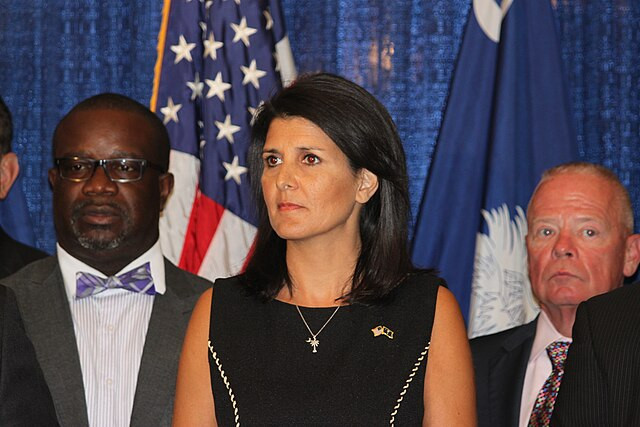Nikki Haley, the former Governor of South Carolina and United Nations Ambassador, has sought Secret Service protection amid increasing threats, especially as she positions herself as a significant GOP contender against former President Donald Trump in the presidential race. Haley's campaign has been marked by a series of alarming incidents, prompting her to take this unusual step for a candidate at this stage in the electoral cycle.
In recent months, Haley's residence in South Carolina became the target of swatting incidents - dangerous pranks intended to draw a large police response to a particular address under false pretenses. In one particularly distressing incident, law enforcement officers arrived at her home "with guns drawn," a situation that Haley described as "awful," especially since her elderly parents and their caregiver were present at the time.
Despite these harrowing experiences, Haley remains undeterred in her political ambitions. "It's not going to stop me from doing what I need to do," she stated, underscoring her resilience in the face of these threats. Her determination to continue her campaign, even after setbacks in the Iowa and New Hampshire primaries, highlights her commitment to her political goals and her role as a prominent figure within the Republican Party.
Acknowledging the risks associated with her candidacy, Haley remarked on the inevitability of threats in public life, especially for those in the political arena. "When you do something like this, you get threats. It's just a reality," she noted, indicating that such dangers are an unfortunate aspect of running for public office. This acknowledgment led to an increase in security measures around her, with Haley affirming, "Does it mean we have to put a few more bodies around us? Yes, that's fine."
The Secret Service typically extends protection to major presidential and vice-presidential candidates, as identified by the Department of Homeland Security, starting 120 days before the general presidential election. This protection is sanctioned by the Secretary of Homeland Security after consultations with a congressional advisory committee. However, there have been precedents where security measures were implemented earlier than the standard protocol in response to specific threats or concerns, highlighting the flexibility in the system to address emergent security needs.
As Haley's campaign moves forward, her request for Secret Service protection brings to light the heightened security concerns faced by political figures in today's charged political environment. It also underscores the complexities and challenges of running for high office, particularly for candidates who find themselves in contentious positions within their party or the broader political landscape.






